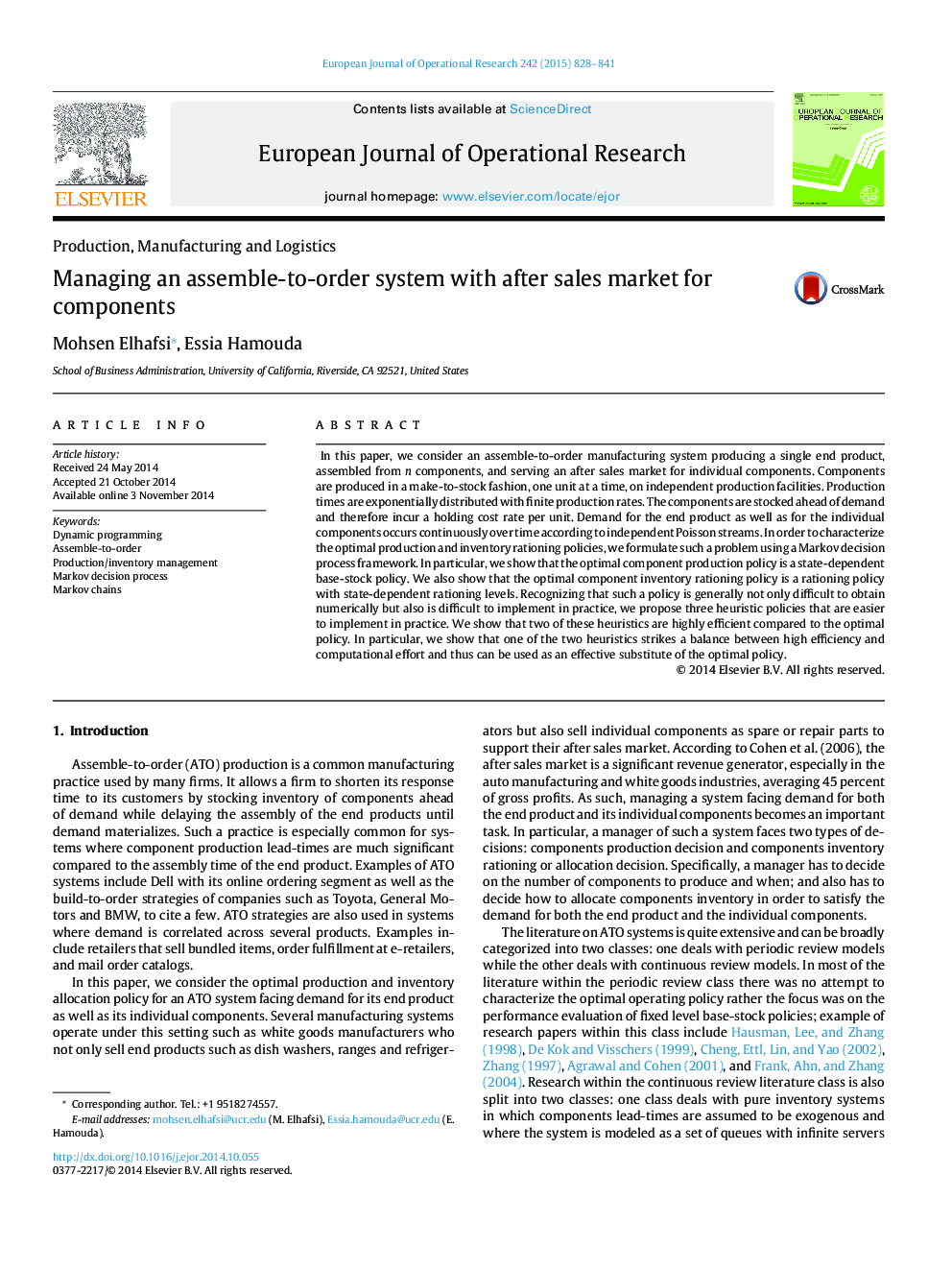| Article ID | Journal | Published Year | Pages | File Type |
|---|---|---|---|---|
| 478082 | European Journal of Operational Research | 2015 | 14 Pages |
•A single product n component assemble-to-order system is studied.•The problem is formulated using a Markov decision process framework.•The optimal production and inventory allocation policies are characterized.•The optimal production and inventory allocation policies are state dependent.•Simple heuristic policies are proposed and shown to be effective.
In this paper, we consider an assemble-to-order manufacturing system producing a single end product, assembled from n components, and serving an after sales market for individual components. Components are produced in a make-to-stock fashion, one unit at a time, on independent production facilities. Production times are exponentially distributed with finite production rates. The components are stocked ahead of demand and therefore incur a holding cost rate per unit. Demand for the end product as well as for the individual components occurs continuously over time according to independent Poisson streams. In order to characterize the optimal production and inventory rationing policies, we formulate such a problem using a Markov decision process framework. In particular, we show that the optimal component production policy is a state-dependent base-stock policy. We also show that the optimal component inventory rationing policy is a rationing policy with state-dependent rationing levels. Recognizing that such a policy is generally not only difficult to obtain numerically but also is difficult to implement in practice, we propose three heuristic policies that are easier to implement in practice. We show that two of these heuristics are highly efficient compared to the optimal policy. In particular, we show that one of the two heuristics strikes a balance between high efficiency and computational effort and thus can be used as an effective substitute of the optimal policy.
